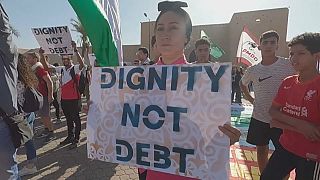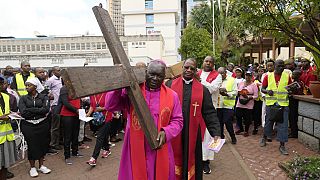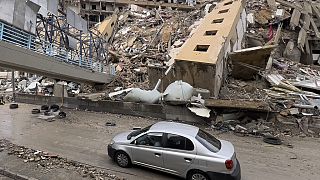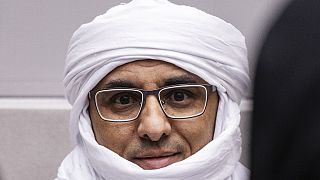North Africa
The war between Israel and Hamas has cast a shadow over the IMF-World Bank annual meetings underway in Morocco, darkening the outlook for an already sluggish global economy.
The global lenders are holding their gathering, which brings together finance ministers and central bankers from around the world, in an Arab country for the first time in 20 years.
"In the Middle East and North Africa, we have lowered our real GDP growth forecast to 2 per cent for 2023, a downgrade by 1,1 percentage point from our last projections in April,” said Jihad Azour, director of the IMF's Middle East and Central Asia department.
He said persistent structural hurdles would constrain growth in the medium term.
“Importantly, growth is not forecast to be strong or inclusive enough to create the needed jobs for the hundred million Arab youth who will reach working age over the next 10 years," said Azour.
Other factors influencing the slowdown include lower oil production, tight policy settings in emerging market and middle-income economies, the conflict in Sudan, and other country-specific factors.
The slowdown forecast was made before the conflict broke out and Azour said that while it was difficult to have a "clear reading" about its economic impact, the situation was "big, it's an earthquake".
However, the IMF said economic growth in the Middle East and North Africa region was expected to accelerate to 3.4 per cent in 2024.











01:10
Spain’s left-wing government stands out on migration policy in the EU
01:11
Climate crisis takes centre stage at G20 summit in Brazil
01:26
Zimbabwe’s Climate-Smart Agriculture: Empowering Farmers through Resilience and Innovation
08:00
Exploring Algeria's maritime potential: How key ports like Annaba and Djen Djen drive growth
01:29
Political analyst says Donald Trump's win moves US to the right
01:59
Botswana’s young farmers hope new government will boost agriculture sector